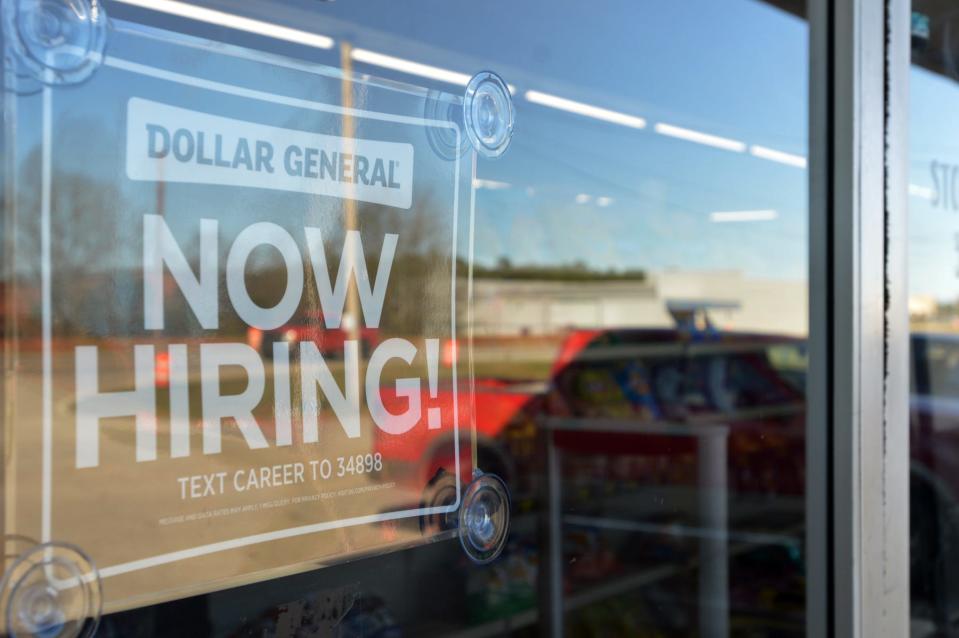Job seekers, employers adapt skills for a job market that's changed amid pandemic
The Augusta area has gained workers and posted its lowest jobless rate in decades, but those indicators still haven’t climbed back to pre-pandemic levels.
And with freshly-minted college graduates entering a hot job market, the most successful applicants and employers are the ones skillfully navigating the workplace’s changing landscape.
“All areas appear to be struggling, and it’s a dance between the candidate pool and trepidation with aggressive hiring due to added strains of inflation impacting the cost of doing business,” said Julie Goley, director of career services at Augusta University.
An estimated 239,900 people comprise the area’s civilian labor force for April, a rise of about 400 workers from March, according to the U.S. Department of Labor. The same figure totaled 245,000 in March 2020.
Locally: Augusta-area job market still falling short of pre-pandemic levels
In April: Cybersecurity opportunities expand amid national labor shortage
The federal government’s Augusta-Richmond County Metropolitan Statistical Area is composed of Richmond, Columbia, Burke, McDuffie and Lincoln counties in Georgia, and Aiken and Edgefield counties in South Carolina.
Unemployment dropped for the first time this year, to 3%, in Richmond County and the 11 other neighboring Georgia counties comprising the Central Savannah River Area Regional Commission. That area’s jobless rate had stalled at 3.9% for the first three months of this year.

Some sectors flat, but retail surges
Area job numbers in many specific labor sectors stayed largely flat or changed only slightly. But, in two job sectors, the number of local workers has shot up from a year ago, seemingly reflecting changes in consumer habits in a rising delivery economy.
Retail jobs surged in the Augusta area from 26,655 in April 2021 to 29,949 this April, federal labor data shows. Local transportation, warehousing and utilities jobs employed 8,821 in April, compared to 8,405 in April 2021.
But Goley said she hasn’t seen any job sector fully recover yet “because we are struggling with so many dynamics,” she said.
“It’s the biggest disconnect I’ve seen between employer needs and sourcing talent in my 20-plus years of facilitating college graduate engagement with employers,” she said. “I think we are in the midst of a fundamental shift in how people seek and select where to apply, coupled with how employers source them.”
Recruiting workers
Businesses nationwide are planning to boost college-graduate recruitment by 31.6% this year, according to a recent survey conducted by the National Association of Colleges and Employers.
Locally, high-need fields seeking more workers include K-12 teaching, information technology, public/social services, and health care, according to Goley.
Employers could benefit from new approaches to recruitment aimed at grads who have been shaped by different experiences from their predecessors, she said.
“Think of it this way: Campuses are sandwiched with traditional-age college students who had two years of pandemic coming into or exiting college. In many ways they are still figuring themselves out under very unique circumstances that don’t always mirror what a workplace expects,” she said. “College years are key developmental years, personally and professionally for students. That has been disrupted. The mentorship, training and development for new hires has never been more important.”
For example, employers need to get better at writing job descriptions for entry-level opportunities so students can "clearly see they can do it,” she said.
“When the employer is asking for X years of experience, citing software knowledge and terminology that is likely industry-specific, it will not resonate to a new grad already having trepidation about what they can do,” Goley said. “They tend to be pretty literal in reading descriptions, so they don’t apply if they don’t understand it or clearly see they are eligible.”
Students should be just as specific, she said. New grads could improve their job-search results by preparing résumés that focus most closely on the critical skills employers seek when evaluating new hires.
“With the advancements of artificial intelligence and application tracking systems, you have to tailor by the job now more than ever for your information to get noticed,” she said.
Differing expectations between workers and bosses are changing the workplace. Societal circumstances that emerged amid COVID-19's effects, such as an increase in working from home, has led many workers to reconsider the importance of a work-life balance.
Polling more than 52,000 people worldwide, professional services company PricewaterhouseCoopers found recently that 65% of workers are broaching “sensitive issues” with their employers in hopes of creating an open, inclusive and understanding work environment.
“We’ve got gaps between the process and the people we are all going to have to redefine and re-establish,” Goley said.
This article originally appeared on Augusta Chronicle: Augusta-area job numbers inch closer to pre-COVID heights

